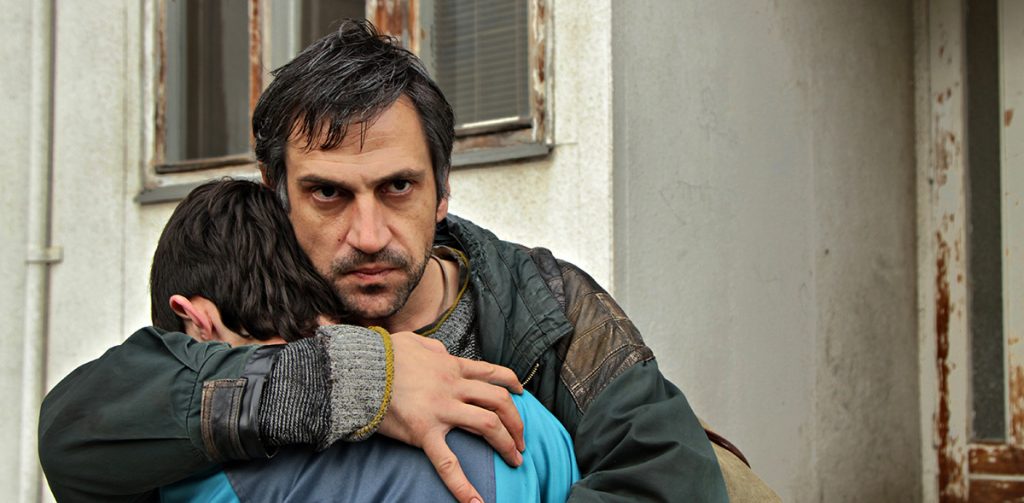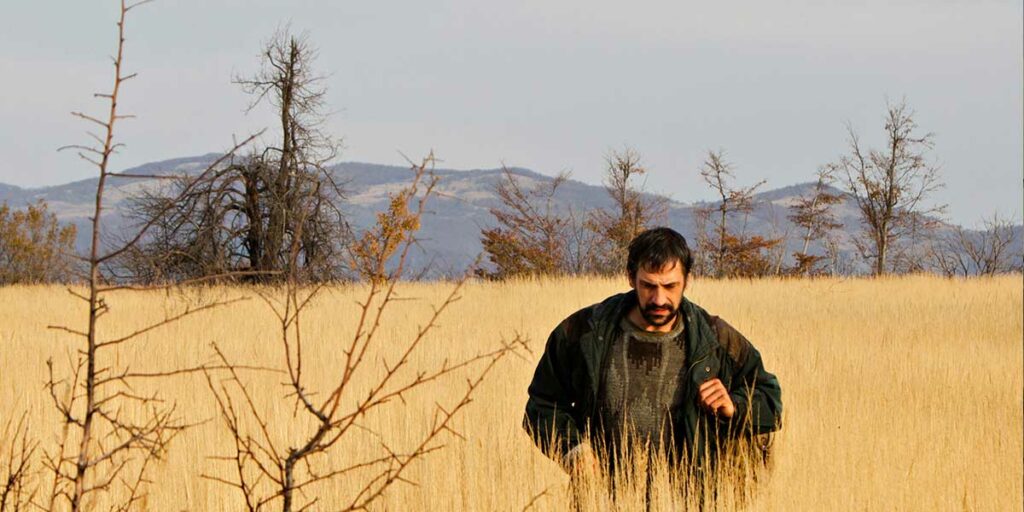Father is a gorgeously filmed, sensitively acted, and decidedly minimalist drama that overcomes a familiar screenplay by showcasing moments of quiet humanity.
Nikola (Goran Bogdan) is on a quest to walk 300 kilometers from his small Siberian town all the way to Belgrade. His children have been taken from him by a corrupt local child services official who deemed Nikola too poor to take care of them. This has left him with no other choice. Carrying a backpack with a loaf of bread, a water bottle, and a letter of appeal, Nikola ventures across the beautiful yet harsh Serbian countryside. The story of Srdan Golubović’s Father is simple but refreshingly minimalist, showcasing moments of heart-wrenching humanity throughout.
While clocking in at two hours, Father is consistently compelling, thanks to Aleksandar Ilić’s lovely cinematography and Bogdan’s sensitive lead performance. Ilic imbues his images with a wonderful film grain that adds texture to the lovely shots of Serbia, from the golden shimmer of grains swaying in the wind, to the cool blue hue of early morning fog. His images are tremendously successful at evoking mood and implanting the viewer in the locations that Nikola traverses. Additionally, Bogdan’s performance is as soft and minimal as the rest of the film, his perpetually rugged face conveying a heavy sense of sorrow that he represses in order to fulfill his mission. Thankfully, there are several moments where Nikola cannot contain his emotions any longer. In these scenes, Bogdan either silently sobs or shouts with such pain in his voice that you forget that he is playing a character. The more time we spend with Nikola, the more real he becomes.
Narratively, Father is maybe too straightforward and familiar, another story of a man attempting to overcome bureaucracy. The film is justifiably angry and bleak, though smartly makes room for moments of human kindness. Golubović shows that, while the systems at play are vile and seemingly unnavigable, there is still hope in that people are more likely to help each other than to not. While the political machine is unwilling to aid Nikola, he meets old coworkers, neighbors, and even strangers who offer to help them in their own small ways.

Father refuses to provide traditional narrative closure, but it is a film that is more about the journey than the destination. The film’s ending brilliantly forms this idea, as the last ten or so minutes are nearly absent of dialogue. There are no easy answers for Nikola and there is no obvious path for him to take, but there is hope. Earlier in the film, as his house is being inspected by government officials, one of them mentions that “children should also have a computer. It’s the 21st century.” He may be right, but he is wrong to say that it is only up to Nikola to provide such a device. Nikola, who has been unable to find a job. Nikola, whose previous employer still hasn’t given him his severance check. Nikola, who lives without running water and electricity. Father makes clear that everyone should have the necessities to survive. After all, it’s the 21st century.
Father is premiered at the 47th Seattle International Film Festival on April 8-18, 2021. The film will be released in US theaters on April 15, 2022.

